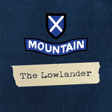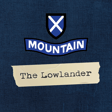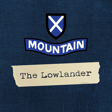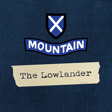Become a Creator today!Start creating today - Share your story with the world!
Start for free
00:00:00
00:00:01

THE LOWLANDER - TWITTERPATING
It's a veritable feast of issues and insights this week, as the 52nd Lowland Division heads north east across Germany to the low countries. Interjections from the crooner and the Reverend, and a wee look at another mountain division. (And Canada. We mention Canada.) Andy and Merryn, digging in to the issues of this week's Lowlander...
Recommended
Transcript
The Lowlander Newsletter
00:00:05
Speaker
From 1944 to 1945, the 52nd Lowlander Division is fighting its way across Northwest Europe. The writing is on the wall, but it's also on the page. The Army Education Branch sends a newsletter out to thousands of men, all pulling together, pushing the enemy back. This newsletter is called The Lowlander.
00:00:42
Speaker
Hello Andy Hello Mary Hello Hello It is another episode of The Lowlander and this week we will be looking at editions of the regular service newsletter that were sent out to the men between the 5th and 11th of February 1945.
00:00:56
Speaker
It's a little bit less to go on this week, I'm afraid. We found these editions of the Lowlander in the War Diaries. And as often as the case, the War Diaries aren't the tidiest or most organised documents. There are only four days of Lowlanders in them for this week. But that doesn't mean to say we can't still dig into them. However, before we do that, remind us what's going on in the war this week.
Key WWII Events Discussed
00:01:17
Speaker
Okay, well, this week, beginning of February, so we would have had the Yalta conference in Yalta, that's with Roosevelt, Churchill and Stalin all getting together to discuss what happens after the war is over. Paraguay declares war on Germany and Europe, not Europe, Germany and Japan, and Ecuador declares war on Japan, which feels a bit like an afterthought, to be honest with you.
00:01:40
Speaker
I'll tell you else, it's the Battle of Pokoku and the Urawadi River Ops they begin in Burma as well. Shall we find out where the jocks are first? Tell us where the men of the 52nd lowland division are please this week and what is going on?
00:01:55
Speaker
Well, it's all changed in the 52nd, so we've been in the Royal Triangle for, feels like, months now. What's going to happen now in 21st Army Group, which is under General Montgomery, is the 1st Canadian Army under General Carrard. They're going to be launching Operation Veritable this week on the 7th and 8th of February.
00:02:13
Speaker
This is to clear what's known as the Rhineland, so that's the bit of land between the River Mass and the Rhine, and this is all getting ready for the Rhine Crossing, which is going to happen in late March. So this area, the Rhineland, needs to be cleared first, and it's kind of hard to describe around. It's kind of woods, but it's quite low lying. There's a few hills, but it's kind of wet, and it's
00:02:37
Speaker
It's not the most picturesque part of the world, and it's not perhaps the nicest place to fight over. So this is going to be launched towards the end of the week, and it's going to be absolutely huge. In fact, it gets bigger and bigger as the battle goes on, because even though geographically the area isn't particularly large,
00:02:56
Speaker
They're trying to cram as many units in there to clear it as quickly as possible. And actually, that tactic or that strategy doesn't really work because what ends up is a very congested battlefield, which doesn't allow you any room for maneuver. For example, the Canadians have three divisions in it, and they're really dealing with the northern part of the Rhineland, which is there that's been flooded around the Rhines. They've got their amphibious vehicles. But 30 Corps under General Horrocks, friend of the show,
00:03:24
Speaker
his job with 34 is to clear the rice fold and then down into the towns of Cleve and Gog and Cleve Car and places like that. This gets really messy really quickly huge traffic jams the German first parachute army under General Slim they put up a really stiff resistance and what this means is it starts to bog down and you start looking for answers and one of the answers
00:03:46
Speaker
the home
00:04:01
Speaker
and getting ready to help between Nijmegen and Venlo which is quite a large area so all the division brigades are spread out and they're actually just waiting. One thing to note is all of the war diaries and all of the people that were there remember the opening barrage of Operation Veritable because it was absolutely huge but we'll talk more about what their involvement was next week but that's where the jocks are so they've moved up they're out of the raw triangle and they're ready for the next phase. Blimey I feel proper educated.
00:04:30
Speaker
Should we get going then? Yeah, let's go.
Impact of Berlin Bombing
00:04:36
Speaker
5th February 1945 Berlin Bonfire Air reconnaissance has brought back glowing accounts of Saturday's raid on Berlin. Observation, somewhat impeded by the power of smoke, two miles long by a mile wide, counted eight direct hits on the Air Ministry and many other at the War Office of the Reich Chancellorly, Gestapo HQ and the Ministry of Agriculture.
00:04:58
Speaker
Devastation at five railway stations and the tempo-half marshalling yards will conceivably prolong for some days the hospitality of Berlin is showing the host of refugees who have taken shelter there. On Saturday night RAF Lancasters delivered concentrated attacks against the Benzel plants at Botchop and Dortmund.
00:05:16
Speaker
Benzol plants. I don't know much about Benzol plants, but I seem to remember that this raid didn't exactly go to plan because the big raid was in March, so that's a couple of months away. But this is the one where there were something like 100,000 buildings destroyed. And the idea was that they would focus on the government district to break the will of the people. And yeah, that kind of backfired a bit because the people looked up at the sky, saw all these bombs dropping and went, well, we don't like that very much.
00:05:43
Speaker
No, I mean, there's also a little bit of revelry in the fact things are burning without maybe considering. I mean, obviously it's the Nazis, all the rest of it, but firebombing and what I've used is, well, it's a difficult thing to process nowadays.
00:06:00
Speaker
It's another lens through which I don't think we look at bombing often enough, and that's the way it gets reported. Okay, not getting to the nuance of the actual language being used, but yes, the way it gets reported, the way it gets written down, how these reports and these narratives are created that describe fire bombing and great destruction and fire ravaging buildings and stuff, bits and pieces, it just builds a huge amount of resentment later on.
00:06:28
Speaker
yes and of course some of the people some of the people reading this would remember the blitz and that does that can go two ways it's like oh god that's terrible i remember when i was bombed also there's a lot of this you know well you serve you deserve it and so it gets really it gets really messy but that's an interesting report isn't it it is it's um a bit dark to start with but that's that's more for you that one
00:06:53
Speaker
February 5th, 1945.
Wartime Art and Communication
00:06:56
Speaker
Sunday service in the field. Well, this isn't actually a news report, is it, Marin? It's actually a drawing and it's, well, they've definitely sacked the old artist and they've brought a new one in.
00:07:06
Speaker
Yeah, I think they must have done. This is, it says by Henderson Blythe, and we do know who this is. This is Robert Henderson Blythe, who was born in Glasgow in Newlands. He studied at the Glasgow School of Art from 34 until 39, and he joined the Royal Army Medical Corps in 1941.
00:07:25
Speaker
said with them to the end of the war. His unit was 157 Ambulance which is based in Hamburg okay and where he was was the influence on a lot of his paintings at the time. Now he sent some works off to the IWM in 1942 and I've got to check that day because that seems early for the Imperial War Museum but one of those was purchased for five guineas and he tried again later on to sell bigger pictures and more pictures but they turned him down.
00:07:54
Speaker
Now, you know Dali's Christ on the Cross at Kelvin Grove? I do, yes, it's my grandmother's favourite painting. Well, one of his most famous paintings is not dissimilar in that there's a view across a bombed town, and there are definitely echoes of Hamburg there, and greenfields beyond it, and the central motif is shattered calvary, it's the figure of a hollow Christ figure
00:08:19
Speaker
broken and headless and surrounded by debris and just at the foot of the cross there's a field ambulance that's parked close to the road. Oh wow! But I'll tell you what, my favourite, because there aren't, I mean his range was phenomenal, he did all sorts of different styles as well, my favourite is one called Dawn Without Glory which was a tribute to the men of the second British Expeditionary Force who of course embarked for France after Dunkirk and we'll find a picture of that and put it on Twitter.
00:08:46
Speaker
Well, of course, you mentioned he's part of 157 Field Ambulance. That is the field ambulance. For those of you who don't know, each brigade within a division has a particular field ambulance unit that covers their division. And 157 Field Ambulance covers 157 Brigade. And as we remember from a few episodes ago, 157 Brigade was the Glasgow Brigade. It had the fifth
00:09:08
Speaker
and the six battalions of Highland Light Infantry and the first battalion the Glasgow Highlanders so it's all sort of joining up you know the fact that he would have been to Kelvin Grove undoubtedly to see that painting because it's the most famous painting in Kelvin Grove Art Gallery and the fact that he's got a full ambulance on 2nd BEF
00:09:26
Speaker
because of course second bf although the whole division went over there in 1940 to fight in the normandy peninsula actually 157 brigade is the only brigade that fought the germans before they retreated out of sherbourg at the end of the middle of june i'll tell you something else we'll pick up on here this is a picture of the sunday service in the field and what we've actually got is we've got a pastor or everyone standing at the front we've got the the the men clearly in uniform just all heads bowed hands in front of them listening carefully to what's being said
00:09:56
Speaker
Yeah, because the most famous or infamous chaplain during the Second World War, one of the most famous was the Reverend Ronald Selby White, who was the senior chaplain of the 52nd Learning Division. Correct. Yes, he was also the radio padre on the BBC.
00:10:14
Speaker
He joined the Territorials before the war and then he became Padre of 7th 9th Battalion of the Royal Scots and then he became senior chaplain to the 57 Lowland Division in 1942. But did you know this, when he started broadcasting for the BBC,
00:10:33
Speaker
His messages were being listened to by prisoners of war and MI9 was keen to make use of them to pass messages on to the various camps, so he had to continue the talks that were only supposed to last for six months, right the way throughout. In 1943,
00:10:51
Speaker
Selby Wright's programme became the second most listened to radio programme on the forces radio, something like 10 million people a week were listening to, and he used to get lots of mail that was very embarrassing.
00:11:05
Speaker
So he used to get like 800 or 1000 letters a week. One, he did a discussion on VD and that brought in a couple of hundred letters. And the other one that brought in loads and loads of letters, including reports of the fact that his tour could actually brought people together again.
00:11:25
Speaker
was one on the ideals of love and marriage, which he called Twitter-pating. It's a real word, Twitter-pating, and somewhere I've got a transcript or a little leaf that talks about Twitter-pating. I'll have to dig it out.
00:11:41
Speaker
It means being swept off your feet by someone quite fancy. And I tell you what, the word itself was first used. Oh, Lord, this is a font of knowledge, isn't it? 1942, it appeared in the film Bambi. There you go. So my takeaway from all of this, which is all very interesting and fascinating, is never underestimate the reach of the 52nd Lowland Division.
00:12:12
Speaker
And the purpose of this service this afternoon is to ask for God's blessing on all these lovely beasts in front of us, so nicely arrayed and so beautifully done up. It's a most moving sight to watch them coming in, as if they knew, as indeed perhaps in their hearts they do know.
Moroccan Troops' Reputation
00:12:30
Speaker
6th February 1945 The end in sight in southern Alsace. Yesterday the 12th US Armoured Division moving south from Colmar met the 4th Moroccan Mountain Division coming up from Mulhouse and thus split into the German force still holding out around Neue Breisach. It looks as if a fair proportion of this rear guard will join the 2,500 prisoners who passed into Allied cages on Monday.
00:12:57
Speaker
Americans are battering at the last defences of Neubreisach and have the escaped pontoon bridges under artillery fire. Now what do we know about Moroccan mountain divisions? Anything? Well, they came from Morocco. I was being serious. The only thing I know is they conquered the island of Corsica and that's really dragging them.
00:13:22
Speaker
very mountains. Well, they were part of the French Expedition Corps who were fighting through Italy and then they get transferred over to northwest Europe. And they didn't participate in the invasion of southern France, but they landed there sort of later on in the year and they were moved up to Alsace, which is mountainous terrain with the French forces, and against some German mountain troops, or Gibergjäger.
00:13:49
Speaker
So there would have been part of the, what, the FFI, the French Forces of the Interior, wouldn't they?
00:13:54
Speaker
Yes, correct. Yeah. Yeah. And the interesting thing is, of course, they were they were they fought all the way through southern Germany into sort of Bavaria and places like which is obviously mountainous. And there's a fantastic book by an author called Julia Boyd. And I know you've read it as well. Yes. Fantastic. It gives you a full history of this village all the way in Germany, southern in the southern Alps.
00:14:21
Speaker
It's a really amazing book. It talks about how the Nazi system slowly percolated through the village and how people resisted, but how people didn't. And of course, one of the things is the Moroccan troops ended up in that village. And of course, through Nazi indoctrination and racism and all the rest of it, they were really, really worried about these Moroccan troops if they viewed them as all sorts of things, as you could imagine.
00:14:44
Speaker
But actually, as it turned out, the Moroccans treated the Germans much, much better than the French or the national French troops because they didn't have any of the sort of national hang-ups between French and Germany. And actually, they were really popular with the locals and they treated the locals with respect.
00:15:02
Speaker
and vice versa. So that's a fantastic book. We don't normally do book recommendations on the Lowendorf, but that's one of the most standout books the last few years, isn't it? It is. I've completely forgotten that they were mentioned in there. Can you remember the name of the book? A Village in the Third Reich by Julia Boyd. Perfect.
Post-War Rights and Tours
00:15:32
Speaker
Hello everybody, it's Andy here. I'm just interrupting this episode to talk to you about the up and coming tour that we're doing to Germany and the Netherlands.
00:15:41
Speaker
tours of course Walking with the Jocks where we follow in the footsteps of Peter White and his jocks in the fight through the Roar Triangle and up to the Rhineland and Operation Veritable. We're going to have a look at Trenchies, Cemeteries, we're going to look at Battle Damage or Spang as we like to call it. Me and Meryn would really lovely to see you there. So all you have to do is go to walkingwiththejocks.co.uk that's our website
00:16:04
Speaker
In there it will give you all the instructions, it will give you a little bit more information about the tour and also you'll be able to fill in a booking form and hopefully you'll be able to get yourself on the tour. So just a reminder, that's walkingwiththejocks.co.uk from the 11th to the 14th of October. We'd love to see you there, go and check it out and now you can return to the episode.
00:16:32
Speaker
6th February 1945 Civilian Jobs One of the thousands of men and women discharged from the services last year, only 62 had to appeal to the Ministry of Labour for reinstatement in their pre-war jobs. In 42 cases, the Ministry found that the employer had a fault and awarded compensation or reinstatement.
00:16:51
Speaker
See, I had to look this up. This was the military training act that got passed in May 1939, which meant that anybody who was called up had a right of reinstatement in their original job. But did you know they also got a payment as well?
00:17:05
Speaker
No, it didn't. What kind of like a kind of sort of furlough payment? Yeah, exactly. That's exactly right. They got a certain amount of money depending on how long they'd been in the service. It was week by week and depending on which rank they were. And the government put aside £100 million to settle all the debts that were due, compared with £36 million that was allotted in the first World War.
00:17:31
Speaker
I tell you what, that entire page in Hansard is an absolute font of information. It mentions prisons of war in Canning Town causing all sorts of runtions because there were non-Nazis and Nazis in the same camp and nobody could decide.
00:17:50
Speaker
Nobody could decide which Germans were bad Germans, which Germans were good Germans. And I'll tell you the other thing that was on the same page, the white fish industry in Scotland was kicking off all over the place because there was a committee that was set up without having any expense money allotted, but the committee on the herring industry presided over by the right honorable and gallant member for Kelvin Grove, Lieutenant Colonel Elliot, got all the provisions it wanted for any expenses it wanted to incur. So there you go.
00:18:20
Speaker
Friend of the Shore, the Herring. You can always check out Hansard. 10th February 1945.
Rhineland Assault Strategies
00:18:32
Speaker
Canadian Army advances 5 miles. British and Canadian troops in their attack south-east of Nijmegen had at dawn yesterday advanced almost 5 miles on a front 6 miles wide.
00:18:45
Speaker
Between the Mass and the Rhine, British troops have taken some dozen towns and villages and are now halfway from their starting point to the German town of Klieve. They have reached the outskirts of the Reichswald Forest and have already penetrated the outer defence of the extension of the Siegfried Line, which was found to be very thinly manned. More than 1,800 prisoners have been taken. North of this, the Canadians are fighting one of the strangest battles of the war.
00:19:12
Speaker
The land is covered to a depth in places of five feet of water and the Canadians are travelling from one German strongpoint to the next in amphibious buffaloes. In both these attacks the greatest difficulty our men are facing seems to be the mud rather than the Germans. The latter still seem to be dazed as a result of the terrific barrage with which the attacks were opened together with the very heavy air support which General Crerar has described as superb.
00:19:40
Speaker
The 1st and 3rd Armies have continued their stubborn advances into Germany with the latter meeting particularly heavy resistance in their bridgehead positions. In Alsace, all German resistance west of the Rhine has ceased and the 1st French Army now stands on the banks of the Rhine from the Swiss frontier to about 10 miles north of Strasbourg.
00:20:00
Speaker
Over a thousand RAF heavy bombers were out attacking various German targets on Thursday night. Berlin was visited by mosquitoes and an oil plant near Stettin was heavily attacked.
00:20:16
Speaker
Well, they're LVT Landing Vehicle Tank, so they are a tracked and fibious vehicle. A little bit of armour on them, like armour. More famously used in the Pacific, so you see the Marines and some of the Army troops in the Pacific landing on them. But of course, used by the 52nd Loan Division in the Shell Estuary on South Bedland and Wolfram.
00:20:37
Speaker
that that that
00:21:15
Speaker
flooded that the British had to do. And of course at the same point the Canadians are going from village to village on buffaloes attacking sort of basically little islands in that area. The British are also fighting through the Reichswald and really not making much progress at all.
00:21:22
Speaker
the official Canadian history of the Second World War
00:21:30
Speaker
They also mentioned the air support that was coming in. And actually, famously, the medieval city of Cleve was almost completely destroyed by air attack on the orders of Horrocks, friend of the show. And I think probably one of these biggest mistakes, I think, probably fair to say, in that it destroyed a medieval city which was kind of unrivaled in terms of its architecture. But also in terms of the defenders,
00:21:59
Speaker
what it did was it flattened and it created a perfect area for defence, the buildings had collapsed, there was loads of places that the parachute army, the German parachute army could reinforce and it actually really slowed it down even more.
00:22:11
Speaker
He regretted that the rest of his life. You can see interviews with him where he acknowledges that was a mistake. In fact, I think probably in terms of all of these battles, I think the race falls and Veritable as part of it was probably one of the worst. It was a bit of a slogging match. It was a sledgehammer against a nut, but the nut was incredibly difficult.
00:22:31
Speaker
I'll tell you what else we should mention. You just mentioned a great bit of map porn there. There is a map on this page. And actually looking at it, if you think about the Allies going from west to east, moving across the Rhineland, then from north to south you've got this perfect defensive line, which is a river mass. And then you've got the river Val, which is to the north of it, just running north of Nijmegen.
00:22:54
Speaker
But I tell you what, just to the north of that is the River Lech and people don't talk about the River Lech very often when they perhaps should do a bit more because they get sidetracked by a bridge too far over the River Lech to Arnhem. So I'd never heard of the River Lech.
00:23:11
Speaker
I've heard of the rain, the vowel, the mass. We're talking about the mass all the time. I know, I know. What the interesting thing about just going back to Veritable, which I'm clearly banging on about a lot today, it starts west to east and then it turns right and it actually goes north south. So actually later on next week we'll talk about it starts to go south and literally it starts to go south. I'm also not convinced by the scale on this map, which shows 10 miles. No.
00:23:45
Speaker
Good Listening, 10th February, 45 Home Network, 1855 Those were the days 20 Hundred Hours, Music Hall 2130, Strife by Galsworthy Forces Network, 1915, Music from the Movies 2115, Music of the Footlights, 2200 Hours, The Canadian Show
00:24:12
Speaker
Now, we should point out that when they say the Canadian show, they're talking about Robert Farnan, who was a composer, an arranger, jazz trumpeter.
Wartime Music and Literature
00:24:21
Speaker
He was commissioned as a captain in the Canadian Army, and he became the conductor and arranger of the Canadian Band of the Supreme Headquarters Allied Expeditionary Force. If I'm not Canadian, do I have to turn off then?
00:24:36
Speaker
Also, here's the question. 1855 on the home network, on the home service. Those were the days. What days are they referring to? Because if we said those were the days nowadays, would we be talking about the 1970s? I don't know. What were those were the days in 1945? I've got an idea. It's 1920s, 1930s. But I tell you what, I'll try and put together Chinese. There must be snippets of what they were listening to. Oh, yeah, definitely, definitely. I'll take them out.
00:25:09
Speaker
Yes, it's Bing Crosby in the craft music hall with John Scott Trotter, his orchestra and chorus, Eugenie Baer, the charioteers, and our special guest this evening, the distinguished and dynamic pianist composer, Duke Ellington. Say, don't look now, Bing, but has it occurred to you that John Scott Trotter's dropped a little ballast? Oh, yes. That boy has definitely taken a modicum of Scott off Trotter, don't you think?
00:25:32
Speaker
Yeah, how'd he do it? Diet. Oh, what diets are you using? Harper's Bazaar Diet or 18-day diet? It's a brand new diet, Ken. Oh, what's it called? The Battle of the Boat. Now while we accentuate the positive, he's going to try and de-emphasize his derriere. You've got to accent. Chewate the positive, the evil.
00:26:14
Speaker
And finally, we go to this week's slot for the day, on the 10th of February, 1945. We are people yet, though all men else their nobler dreams forget, confused by brainless mobs and lawless powers, thank whom
00:26:28
Speaker
Thank him who has ailed us here and roughly set His Britain in blown seas and stormy showers. Tennyson. That's the man himself. OK. Who is the man?
00:26:42
Speaker
is the man i've heard of tennyson but i don't even know his name it's alfred lord tennyson oh yeah it's alfred lord tennyson and this is from the um ode on the death of the duke of wellington let me let me give it a go all right because if you do the bit just before and the bit just afterwards a bit makes a bit more sense
00:27:03
Speaker
Honor to him. Eternal honor to his name. A people's voice. We are a people, yet though all men else their nobler dreams forget, confused by brainless mobs and lawless powers, thank him who ailed us here and roughly set his Britain in blown seas and storming showers. We have a voice with which to pay the debt of boundless love and reverence and regret to those great men who fought and kept it ours.
00:27:32
Speaker
I mean, it's been a while since we've heard about the Wellington. Does that make sense to you? It's beautiful. Well, I have to say you read it beautifully. It just doesn't connect me. I am a heathen, aren't I? You are a bit when it comes to poetry. Shall we wrap it up? I think we better do, yeah. I think we better head. All right, I'll see you next time. Bye.
The Lowlander Broadcast Ending
00:28:04
Speaker
Thank you for listening to this episode of The Lowlander. The Lowlander was written, produced and presented by Andy Aitchison and Mirren Walters. This was a hellish good production.
00:28:39
Speaker
Due to unforeseen circumstances, there are no classified football results for the week of the 5th to 11th February 1945. As a replacement we go to the Forces Network for a rendition of All the Blue Bonnets Over the Border.
00:31:22
Speaker
went in there and they just saw the bloody Germans off. They were hellish good.




